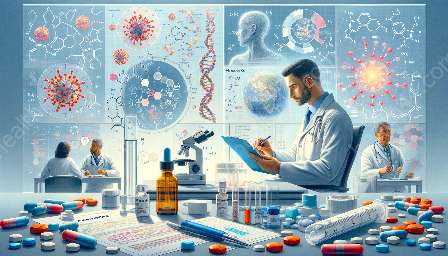Introduction
The process of excretion is crucial in understanding pharmacokinetics and pharmacy. Excretion refers to the removal of waste products, including drugs and their metabolites, from the body. It involves various physiological mechanisms that play a vital role in maintaining the body's internal environment.
Overview of Excretion
Excretion is a key component of drug elimination, a primary focus of pharmacokinetics. Through excretion, drugs and their metabolites are removed from the body, preventing their accumulation and potential toxicity. Excretion can occur through several routes, including urine, bile, sweat, saliva, and exhalation.
Role of the Kidneys
The kidneys are the primary organs responsible for the excretion of drugs and their metabolites. The process of drug excretion through the kidneys involves filtration, secretion, and reabsorption. Understanding the renal excretion of drugs is essential for pharmacists and healthcare professionals to make informed decisions about drug dosing and monitoring.
Excretion Mechanisms
There are several mechanisms involved in the excretion of drugs, including:
- Renal excretion: The kidneys filter drugs from the blood and eliminate them in the urine.
- Hepatic excretion: The liver plays a significant role in excreting drugs and metabolites into bile, which is eventually eliminated via the feces.
- Pulmonary excretion: Some volatile drugs are eliminated through exhalation.
- Glandular excretion: Sweat and saliva can carry small amounts of drugs and their metabolites.
Understanding these mechanisms is critical in assessing the potential for drug interactions and determining the best dosing regimen for individual patients.
Pharmacokinetics and Excretion
Pharmacokinetics is the study of how the body processes drugs, including absorption, distribution, metabolism, and excretion. Excretion is a major determinant of a drug's elimination half-life and overall duration of action. The rate and route of excretion significantly impact the dosing and frequency of administration of medications.
Relevance to Pharmacy
For pharmacists, a comprehensive understanding of excretion is essential for optimizing drug therapy. It influences dosage adjustments for patients with impaired renal or hepatic function, as well as the selection of medications with minimal risk of accumulation in specific patient populations. Pharmacists also play a crucial role in counseling patients on medication adherence and potential drug interactions related to excretion processes.
Conclusion
Excretion is a fundamental process in pharmacokinetics and pharmacy, shaping the therapeutic use of medications. Its intricate mechanisms and interplay with drug elimination highlight the significance of considering excretion in pharmaceutical research, patient care, and medication management.


